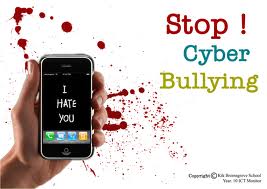
Do you regard this as a case of bullying or bad judgement?
Either way, there had to be some consequences:
A township teacher who lost her tenured position and whose teaching license was suspended after she made fun of a curse word in a student’s name has lost her appeal.
Yvette Nichols had appealed an October decision by the state licensing agency for teachers — the Board of Examiners — suspending her teaching certificate for a year for posting a screenshot on Facebook of an assignment a student had completed, which instructed students to “practice writing my name the kindergarten way.” Nichols’ Facebook post, however, focused on the curse word in the student’s name.
The decision does not specify what the student’s name was, or what curse word it contained.
“The student’s name contained a curse word and Nichols allegedly posted ‘I want to ask the parents if I can change it’ and ‘I still can’t get over the student’s name!'” the decision said. “In response to others’ comments about the name, Nichols allegedly wrote ‘How do you think I feel when I have to address him???? I literally can’t stop laughing! I have to go all year with this’—!!!'”
According to the Board of Examiners, the school district investigated the allegations and determined Nichols had violated the district’s harassment, intimidation and bullying policy. Nichols later resigned from her position, but she denied bullying the student.
Nichols, in her previous statements, said her comments were immature and inappropriate, but not a reason to lose her license permanently. Nichols, who said she was remorseful over the incident, also told the board “the curse word in the name was the target of the Facebook post, not the child himself.”
Nichols, who is a single parent, told the board she was under significant stress at the time due to a recent divorce, and because she was “struggling with diabetes.”
The board agreed not to revoke Nichols’ teaching certificates permanently, instead ordering a one-year suspension of them because she had “fully accepted responsibility for her actions.”
In her appeal, Nichols argued that her comments did not “rise to the level of conduct necessary to suspend her certificates because they do not make her unfit to be a school teacher.”
She also proposed that if the suspension of her teaching certificate was upheld “it should be retroactive to one of the following dates: the date when (she) resigned as a teacher with the district; the date when the board issued the order to show cause; or the date when the board voted to suspend her certificates.”
The Board of Examiners rejected Nichols’ argument, saying, “There is nothing in the record to suggest that the Board’s decision was arbitrary, capricious or unreasonable, and as a result the (Department of Education) Commissioner finds no basis upon which to disturb the decision of the state Board of Examiners.”
Click on the link to read The Epidemic that is Online Bullying
Click on the link to read At Least When an Olympic Athlete gets Cyberbullied They Have a Voice
Click on the link to read If You Ever Wondered How Some Kids Become Bullies …
Click on the link to read The Researchers into Cyberbullying Should Review Their Findings











